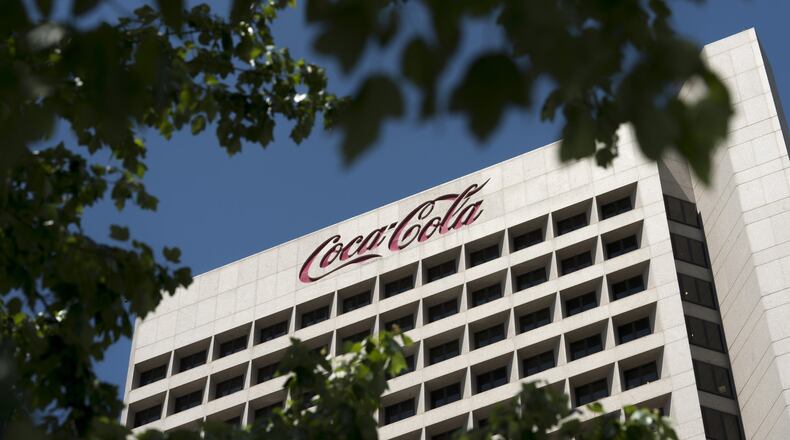Coca-Cola and eight of its bottlers announced this week the creation of a $137.7 million venture capital fund to help the beverage giant meet its environmental goals and reduce its carbon footprint.
The Atlanta-based company has set goals to reduce by 25% its absolute emissions by 2030 against a 2015 baseline, and to achieve net zero emissions by 2050.
“This fund offers an opportunity to pioneer innovative solutions and help scale them quickly within the Coca-Cola system and across the industry,” John Murphy, the company’s president and chief financial officer, said in a statement. “We expect to benefit from getting access to emerging technology and science for sustainability and carbon reduction.”
The fund will be managed by Greycroft, a venture capital firm. It will focus on seeking out innovations in the areas of packaging, heating and cooling, facility decarbonization, distribution and supply chain.
Duane Stanford, editor and publisher of Beverage Digest, said the bottlers taking part in the new fund are among the biggest and most important in the Coke system, accounting for nearly half its global volume.
“That clearly means that there’s a significant amount of weight they’re going to put behind this and they’re taking it seriously, at least,” Stanford said.
He said consumer product companies like Coke are coming under increasing pressure from young consumers, in particular, for their actions on a variety of issues, including climate change.
“One of the ways that they think, companies believe, they can solve the problem that kind of works for investors and works for the environment is to create ways for third parties to be able to capitalize on some of the solutions and actually create viable business out of those solutions,” Stanford said.
He added, however, that it would be a mistake to view a venture capital fund as a panacea for environmental problems or corporate responsibility.
Aleksandar Tomic, associate dean of strategy, innovation and technology at Boston College, said Coke and its bottling partners appeared to be taking a page from the tech industry playbook by creating a separate venture capital fund. He said large companies have many proven ways to decarbonize operations, but setting up a venture capital fund could be complementary to those efforts.
“If they were looking at their distribution fleet and want to electrify it or something like that, they really do not need the VC fund for that... you just buy electric vehicles,” he said. “They’re probably looking for emerging technology or some other big difference makers in that field.”
Matt Littlejohn is senior vice president of strategic initiatives at Oceana, an ocean conservation advocacy group that has been critical of Coke’s reliance on single-use plastic. He said Coke and its bottlers should expand their existing investments in reusable packaging, pointing out that the company’s sales of reusable bottles have lagged recently, despite Coke’s stated commitment to have at least 25% of all beverages sold in refillable/returnable glass or plastic bottles by 2030.
“Coca-Cola and these bottlers, in many cases, they’re the leaders and they have the technology,” Littlejohn said. “Hopefully this fund is ensuring that they remain leaders and they do more and that they disseminate this knowledge as well.”
A spokesman for Coke said the company is working on multiple ways to make its packaging more sustainable, including setting targets on virgin plastic reduction and reusable, refillable packaging.
A note of disclosure
This coverage is supported by a partnership with 1Earth Fund, the Kendeda Fund and Journalism Funding Partners. You can learn more and support our climate reporting by donating at ajc.com/donate/climate/
About the Author
Keep Reading
The Latest
Featured



